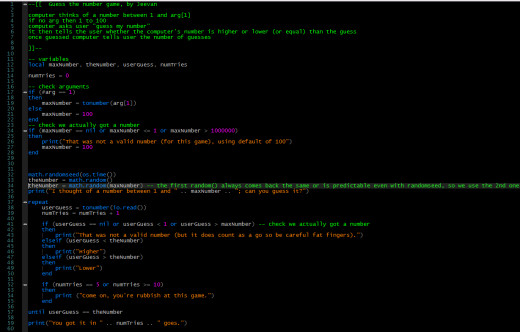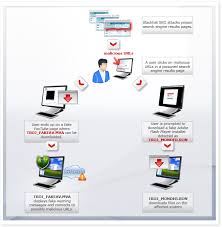What is Computer Systems Hacking
Hacking keeps systems administrators at their wits all the time.

What is computer systems hacking?
The first and most amazing Systems hacks occurred almost a century ago. Back in 1903, a renowned inventor Nevil Maskelyne interfered with a public showcasing of wireless telephony system by John Flemings. By breaking into the system, Nevil Morse coded insults which were displayed on the auditorium projector to the horror of those in attendance. Since then, many computer expert have followed at times leading to massive losses; finance wise and data.
So, what is computer systems Hacking?
Depending on the intentions and the resulting effects, hacking can have a myriad of definations. However, hacking is processes that involves unauthorized access into a computer system by utilizing the weaknesses in design and administration.
How has computer hacking been defined in the past
There is a thin line between ethical hacking and ‘mainstream’ hacking since they are apply the same techniques. Motivation is the only differentiating factor. When it is meant to be a standard routine of safeguarding the systems, it’s chiefly referred to as “white hat” hacking, a slang used on the internet to refer to acceptable, beneficial and ethical process. However, when unknown individual use malicious code to gain access to a computer system, the term “black hat” is employed used. The thin line between the two is the code of conduct. Ethical hacking, this code spells out the rules that governs the process.
In a global world where millions of computers are interconnected to promote sharing remotely, then the code of ethics imperative since it would have been impossible to safeguard organizations sensitive information and systems’ security if ICT administrators were given unrestricted mandate of action. From this view point, ethical hacking is seen as the liberty for systems administrators to alter systems operations as along as it follows the spelt out code of conduct.
Hacking at the workplace

What is Place of hackers at the work place?
Remote systems hacking have been in the news for all the bad reasons; thanks to the media attention. Many corporate leaders, too, view hacking as a grand breach of the organizations core systems and which has the capability to curtail organization operations, risk of sensitive data loss or even stealing of data for use by competing entities. For the better part of recruiting their systems engineers and administrators, organization leaders employ great caution and deliberations so as to ensure that only the most trusted individuals are given the capability to access, view or alter organizations computer systems. And even then, such individuals act under a predefined code of conduct and their mandate is limited to only improving the system and safeguarding from external attacks. For example, systems administrators should ensure that a system is well secured and systems are hardly accessible by fellow unauthorized colleagues and workers. But it is always inevitable to have a 100% trust level in 100% of the organizations. Malicious systems access and hacking is always bound to happen.
Black Hat hacks that shook the world
Systems that were targeted
| Country
| Effects
|
|---|---|---|
1. Boleto payments
| Brazil
| lead to a loss of $700 million from browsers attacks
|
2.Network Playstation attack of Sony
| Japan
| Sony website was closed for a full month. It lead to hacking into more than 77 million accounts.
|
Hacking and ethics
Should controlled hacking be adopted in the workplace Policies?
How do black hacks work?
Hacking is a result of sustained efforts to breach the systems security walls with an aim to gain financially, data wise and at times oppressing and harassing. Some organizations have systems so well safeguarded that it is almost always impossible to hack into their systems. But hackers are always on their wits. Since not all organizations have systems designed to stave off hackers underground operations, hacking always occurs, and if and when it occurs it leaves devastating effects to corporations and their clients alike. A few, exceedingly talented individuals create code which is aimed at compromising security and gaining access to a system vital resources. The code is used by equally curious persons, who have a good understanding of systems’ working, to seek loopholes in network systems and use them to manipulate them at their will.
Hacking involve meticulous planning, code and system mastery as well as calculated networking

Where do hackers target often?
Computer systems in small organizations are not the only target by hackers. Actually, more experienced, hard core hackers have targeted systems that command massive traffic online, or those which command great influence in their niche e of specialization. Though email marketing has brought good tidings in its strides, interestingly, it has acted as bait to hackers based capability to deliver messages in their numbers, and at an instant. Hackers are thus motivated by sheer number for hundreds of thousands of email accounts that could be gained from hacking corporate email data banks. In Miami, for example, a teenager hacked into the NASA systems and stole well over 300 000 emails address. This forced the system to be shut down for up to 21 days as the systems were being scrutinized.
Has there been notable black hat hacking in the past
Some of the more famous hacks were meticulously planned and executed, while others were freaks of accidents. Nonetheless, they altered the terrain of hacking.
Kevin Poulsen hacked radio system to become the 102nd caller

Kevin Poulsen
Kevin Poulsen is one illustrious expert in computer systems. He is more famous for his hacks than for his consultancy prowess at his technology firm Computer Security. Up on his wit, he manipulated thee KIIS-Fm radio show to become the 102nd caller and ultimately earned the grand prize; a grand Porsche car. And when NBC aired the mysteries unsolved, its telephone system crashed. Now that’s a coincidence. He is today an IT consultant at his own firm.
Phone 'Phreaking'

Steven Wozniack
A graduate of University of California, Steven Wozniak, helped co found Apple Inc. with Steve Job. He is easily the more known of hackers who have manipulated the telephone systems without the risk of ever facing the law. Through ‘phreaking’ a term used to refer to manipulating the telephone systems, he was able to make long distance call free of charge. To amuse himself, he sought the attention of high and mighty most notably the pope. His presence at apple has much to do with his maneuvers.
Robert Tappan Morris
Robert Tappan Morris a professor at Institute of technology, Massachusetts caused damages in their millions almost by accident. His was a noble act of curiosity. He was trying to formulate a method of testing the size of internet. By created a self replicating Morris worm, he caused havoc through repairs and crushing of systems where the worm attacked. Though he was reprimanded and jailed, his works are at display at Boston museum and him a professor at MIT.

Adrian Lamo
In the growing list of hackers who manipulated renowned website is Adrian Lamo. At the beginning, Lamo had noble mission. His was an act of fun and self challenge. Until he hacked US government databases and leaked the information to Wiki leaks in the name of Bradley Manning. He is credited with hacking New York Times and adding his name to the databases. His was a case of curiosity gone too far.
Kevin Mitnick
How can an individual hack so many websites, all of standing stature and avoid scrutiny. Kevin Mitnick did. He has accessed systems at Nokia, more at Fujitsu and even at Motorola. He must be outstanding. That’s why he started his own consultancy firm; to exercise his capabilities in an ethical way and at will.
Def con forums
Certainly, this article cannot be complete in entirety without a considerable mention of Defcon Forums. Perhaps due to the fact that it marks a gathering of experts in computer systems security from all over the globe. With Las Vegas playing host to the 21st conference in August of year 2013, Defcon has been in existence for quite a while. Tech savvy individuals drawn from across the globe in the fields of computing and computer systems security gather in chosen Centers to explore a rage of issues shaping the computer industry. The conventions present opportunities to explore new ways to protect computer systems such as government websites and corporate set ups from attacks by black hat attacks.
Defcon forum

Final thoughts
As the internet continues to grow and accessibility increased, individuals and organizations are bound to experience more cyber attacks. Thus, the market for ethical hackers will go steadily to keep black hats at bay.








